Editor’s notes: This is a unique piece and series authored by different pilgrims who went to India on a pilgrimage.
TLDR: Open our three-part series on a January Pilgrimage to India to visit the cradle of Buddhism by diving headfirst into two reflections from Heng Xuan and Kaylee: From reflecting on the power of spiritual friendships to support our practice to exploring the lessons on generosity and selflessness, our authors share their newfound insights and a deepened sense of purpose on the Buddhist path.
Introduction by Doreen Chew
“Huh, pilgrimage..need meh?” I once scoffed at the idea, questioning the necessity of embarking on such a trip. The prospect of a lengthy journey, coupled with the expenses involved, would likely deter many. Yet, being curious and with a thirst for spiritual exploration, I found myself amongst 15 other Buddhist friends on a pilgrimage to India under the guidance of a Thai forest monk, Ajahn Achalo.
Some of us hopped on the journey with little to no expectations (lol, me), while others hugged on tightly to a solid checklist of questions hoping for them to be miraculously answered once they stepped on India’s soil. With our diverse backgrounds, we returned with a variety of learnings over the 10 to 15 days of the pilgrimage.
In this first of three parts of a collaborative reflection on our pilgrimage experiences, some of us fellow nibbana seekers share our takeaways on our individual transformative journeys, each revealing their individual insights and growth.
From the gentle welcome of spiritual friendships to the profound slap-in-the-face on the practice of generosity to recounts of faith, cultivation and the contemplation on death, their stories serve as the lit candle into the darkness, journeying on with enthusiasm. Join us as we look into the first two reflections from Heng Xuan and Kaylee.
Kalyāna-mittatā (spiritual friendship) by Kaylee Siaw
Kaylee Siaw: I feel incredibly blessed, considering that I am relatively new to Buddhism, only beginning to understand the Buddha’s teachings in June 2023 at the age of 33. My pilgrimage journey began in September of the same year when I expressed my interest in Ajahn Achalo’s pilgrimage to visit significant places of the Buddha’s life in India to some DAYWA members.
Much to my surprise, I discovered that the next pilgrimage was scheduled for January 2024, and about 15 other DAYWA members were planning to join.
The application deadline had passed, and I found myself on the waiting list and eventually confirmed a few weeks later.
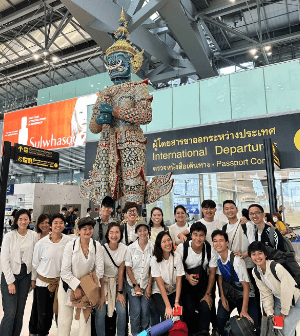
At the time of signing up, I felt woefully unprepared by my own standards. I could barely manage a daily 15-minute meditation session, hadn’t acquainted myself with the suttas we were to chant, and was oblivious to our destination in India (Bodh-what?).
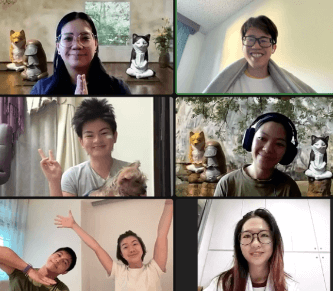
Nevertheless, my genuine intent, coupled with the support of my spiritual friends, fuelled my commitment. We set up a Telegram chat to get ready for the trip. Some members even did yoga together to condition our bodies and practised sitting for longer periods to prepare the mind.
We hopped on Zoom to chant together and even raised funds to donate to Root Institute for Wisdom Culture, a non-profit organisation based in India.
While in Bodhgaya, I found myself lying to a shopkeeper and saying I was from Thailand to get a better price. Both significant and trivial lies seem to flow effortlessly from many of us, often accompanied by justifications such as, “If I reveal I’m Singaporean, he’ll charge me more.”
A wise friend once shared how lying disrupts the mind, explaining that a small lie may lead to the need for additional falsehoods to sustain it.
A network of lies is constructed, demanding careful maintenance to avoid exposure. In this case, I was instantly caught out when the Indian shopkeeper started speaking Thai to me. Upon consulting another admirable friend, she suggested a skillful approach of remaining silent rather than resorting to outright lies.
The beautiful thing about spiritual friendships is that there is no pressure or judgment to be “perfect”. Rather, there is gentle support to be a better version of oneself. To be ”better” not for the sake of those spiritual friends and other people but for the sake of one’s internal peace and joy that comes with being and doing good.
I ask: “Was the few dollars saved worth it? What other mindless activities have we been engaging in throughout our days that contribute to a loss of peace?”
Throughout the journey, I grappled with my doubts and questions, all of which were met with patience, wisdom, and skillful answers, boosting my confidence in spiritual practice. This trip also allowed me to appreciate the generosity and kindness of my fellow spiritual friends, who made the trip more comfortable by sharing heat packs, scarves, snacks, and massagers, and assisting with chanting.
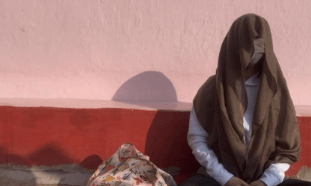
My pilgrimage ended with the understanding that while I wasn’t perfect, I knew I was on the right path with the right companions.
“And what is meant by admirable friendship? There is the case where a lay person, in whatever town or village he may dwell, spends time with householders or householders’ sons, young or old, who are advanced in virtue. He talks with them, engages them in discussions. He emulates consummate conviction in those who are consummate in conviction, consummate virtue in those who are consummate in virtue, consummate generosity in those who are consummate in generosity, and consummate discernment in those who are consummate in discernment. This is called admirable friendship.” – AN 8.54
And that made the heart sing with peace and joy.
Dana (giving) by Teo Heng Xuan
“Should you find a wise critic to point out your faults, follow him as you would a guide to hidden treasure.”- Dhp 76
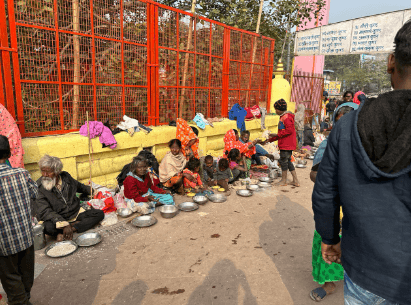
I found this trip interesting because my fellow Dhamma friends were strong mirrors for me to reflect on how I still have much room to grow in my Dana parami (Virtue of Generosity).
Ask me to give my brains and manpower to Dhamma activities, I am all for it. But, ask me to give money or even offer food to monks, I sometimes find that burdensome.
A sense of stinginess arises in giving away ‘tangible’ resources like money and food.
During the trip, stinginess would arise when I was asked to offer to monks or buy items for charity. I had to stop the stinginess and ask myself ‘Why cling??’. It was then the rationalising would come up that ‘Oh, because others can get the opportunity too. So don’t steal other’s chances’.
This was when moha (delusion) had to be caught, I masked not giving up my monies by giving others a chance to give. Seeing how joyful my fellow friends were in giving, I decided to push myself to give.
Slowly, this became a natural act throughout the trip. I could see myself being more okay with my money parting from my wallet. I also found opportunities to say ‘Sadhu’ when others donated rather than questioning if that donation would ‘truly’ be helpful.
I realised that rejoicing in the giving and also in myself giving was helpful in my meditation, I would recollect on the face of the receivers. This easily brings joy to the mind and settles it into stillness.
Going to some of the holy sites reminded me too that it was the giving of many many donors that resulted in the parks and stupas that we saw and experienced. If there were a stingy bugger that tried to ‘optimise’ his/her savings, maybe we’d have half of stupa (because they all collapsed from inferior materials).
Hyperboles aside, I just felt touched by the faceless, nameless giving of others at these holy sites – it is a sort of giving that can last generations.
Giving helps others and ourselves. My Dhamma friends continued that unbroken line of donors to the Buddha Sasana; it was a great time to also join that chain of donors myself. Giving not just my time, energy, but also material resources.
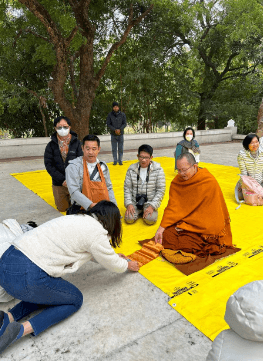
Conclusion by Doreen Chew
When I concluded my journey of contemplation and revelation, I was reminded of the heartfelt significance that a pilgrimage can bring about both internally and externally.
The candid sharing by my two fellow travellers has transcended mere words, working through fear, doubt, self-discovery, and emerging with more bonded friendships, wisdom and compassion.
As we bid our goodbyes to the sacred landscape of India, once walked on by Buddha himself, may we carry not money but a spirit of generosity to walk the Noble Eightfold Path, with noble friends cheering us on. May each step in the path bring us closer to the other shore of inner peace and enlightenment.
Wise Steps:
1. Cultivating Spiritual Friendships: Know and understand the importance of spiritual friendships. Reach out to wholesome people who share similar goals as you to create a supportive community. Foster a safe environment of trust, acceptance and encouragement where each person can grow and strive on their path towards enlightenment. Remember, it is said that you are the average of the five people you spend the most time with!
2. Practice Giving: Giving helps us to practice letting go as we give up our possessions in the form of material wealth, time or service. This challenges our tendencies of stinginess or reluctance to share. The act of giving also provides us with a lighter, less disruptive mind, which aids our meditation practice.


